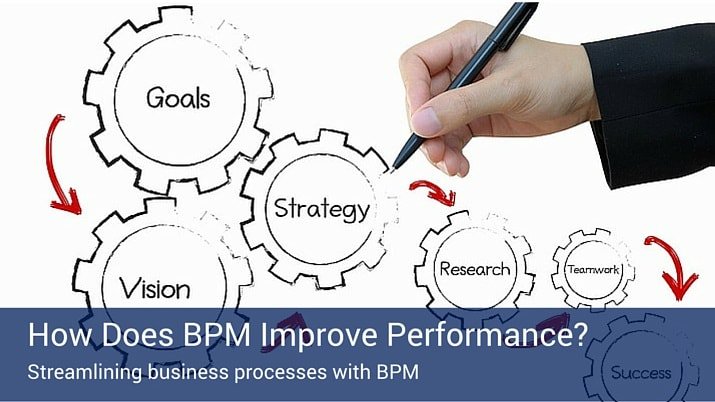How Does BPM Improve Performance?

Last Updated January 18, 2016
The tech world has changed radically over the last decade, with the advent of cloud computing, mobile accessibility and wearable technology changing the way consumers and companies conduct their business. Organizations wanting to stay ahead must be willing to adapt and evolve alongside the constant flux of new and improved technology.
This type of technological upheaval has changed the supply chain, the corporate hierarchy and business infrastructure. The change was likely inevitable. With this many aspects of business undergoing drastic change, the nature of corporate strategy was likely going to change too.
That’s where Business Process Management (BPM) can help. It can help stabilize businesses during these colossal shifts in strategy. Its effects are far-reaching and powerful, but they can be measured in a few simple benefits.
BPM Helps Teams Minimize Rework
When team members are trained on BPM best practices, it can help give them a better and broader perspective on their work. BPM encourages definition of requirements, development and testing during projects. That level of attention, in turn, can help align effort and abate the amount of backtracking and rework required over the life of a project.
BPM Helps Incorporate Diversified Teams
Staffs who are BPM-trained can also have a better understanding of efficiency, including discerning which work may be better off outsourced. When work is properly identified and subcontracted, teams can be better prepared to collaborate and capitalize on efficiencies to see to its completion.
BPM Helps Stop Scope Creep
BPM principles also help regulate the level of effort required to tackle the individual issues that can arise throughout the course of a project. This regulation can aid in decision making and assist project managers in balancing the workload through each iteration of a project.
BPM is about improving efficiency and productivity by streamlining employee duties. It automates processes, reduces cycle times and helps mold team members into smarter and more efficient contributors.
Adapt With BPM
Total performance optimization is typically the ultimate goal, and a strong BPM system can provide businesses with the metrics and measurements required to track progress toward that goal. BPM technology has built-in monitors and notifications that alert stakeholders when results begin to diverge from the optimization of key performance metrics.
It also may help to supplement ever-changing corporate strategies by encouraging continuous improvement in workflows and processes. BPM technology aggregates data and displays it in real time, in the form of dashboards, reports and graphs, in order to assist with performance management.
The world is continually changing. Efficiency is key to staying ahead of consumers and technology. BPM offers solutions in the form of automation and improved workflow, in an effort to formalize and manage data so businesses can keep pace with the evolution.





